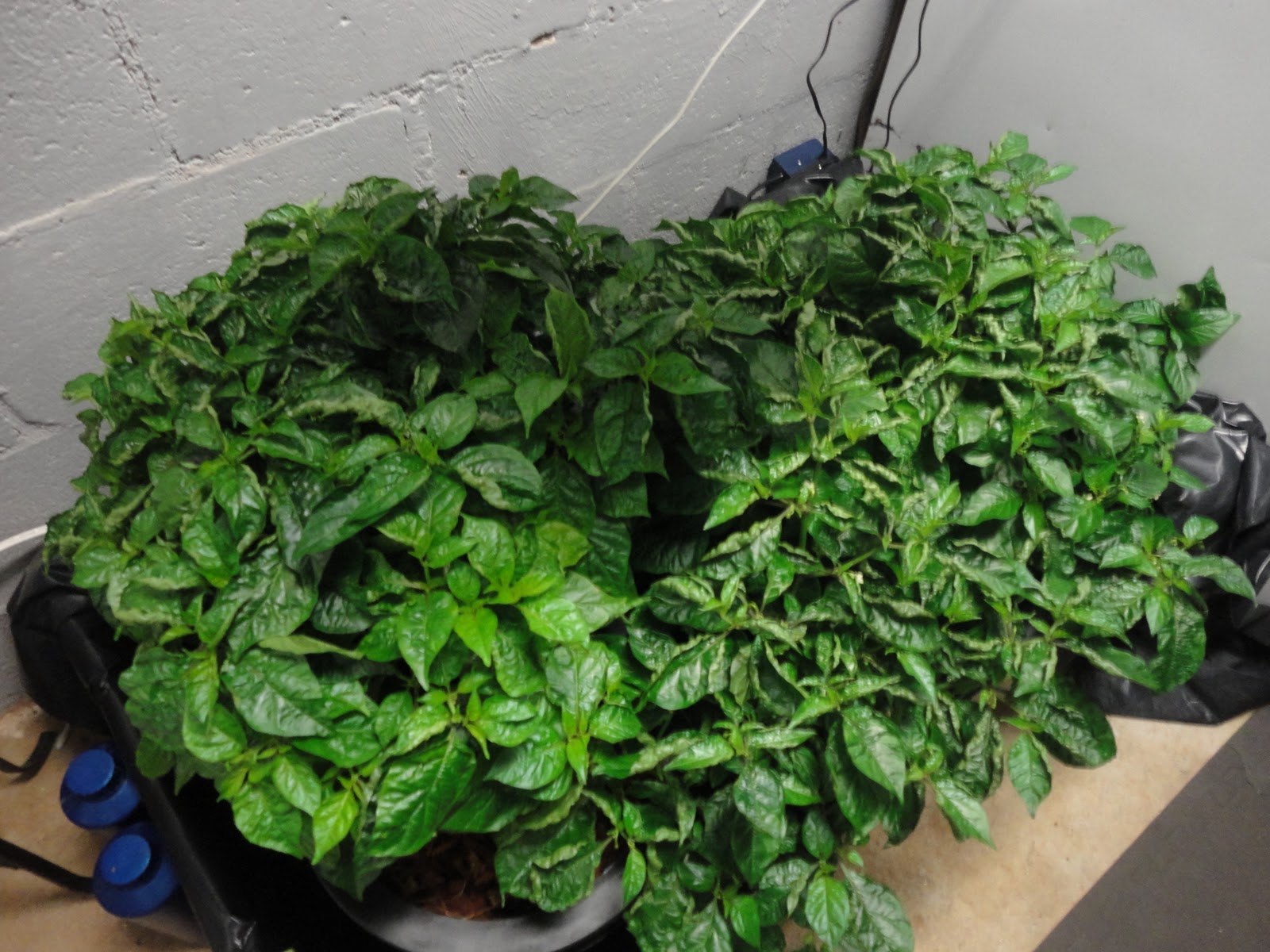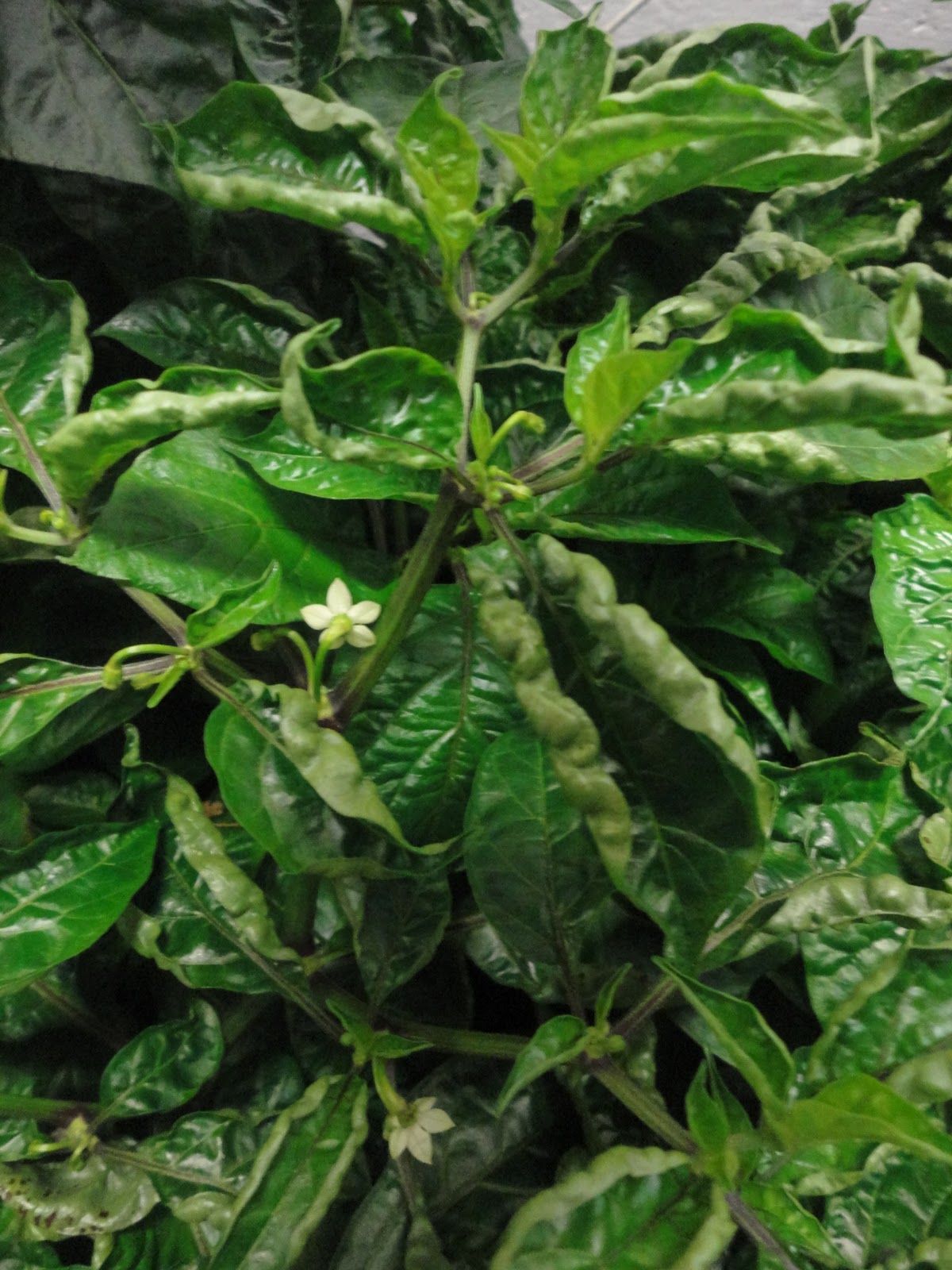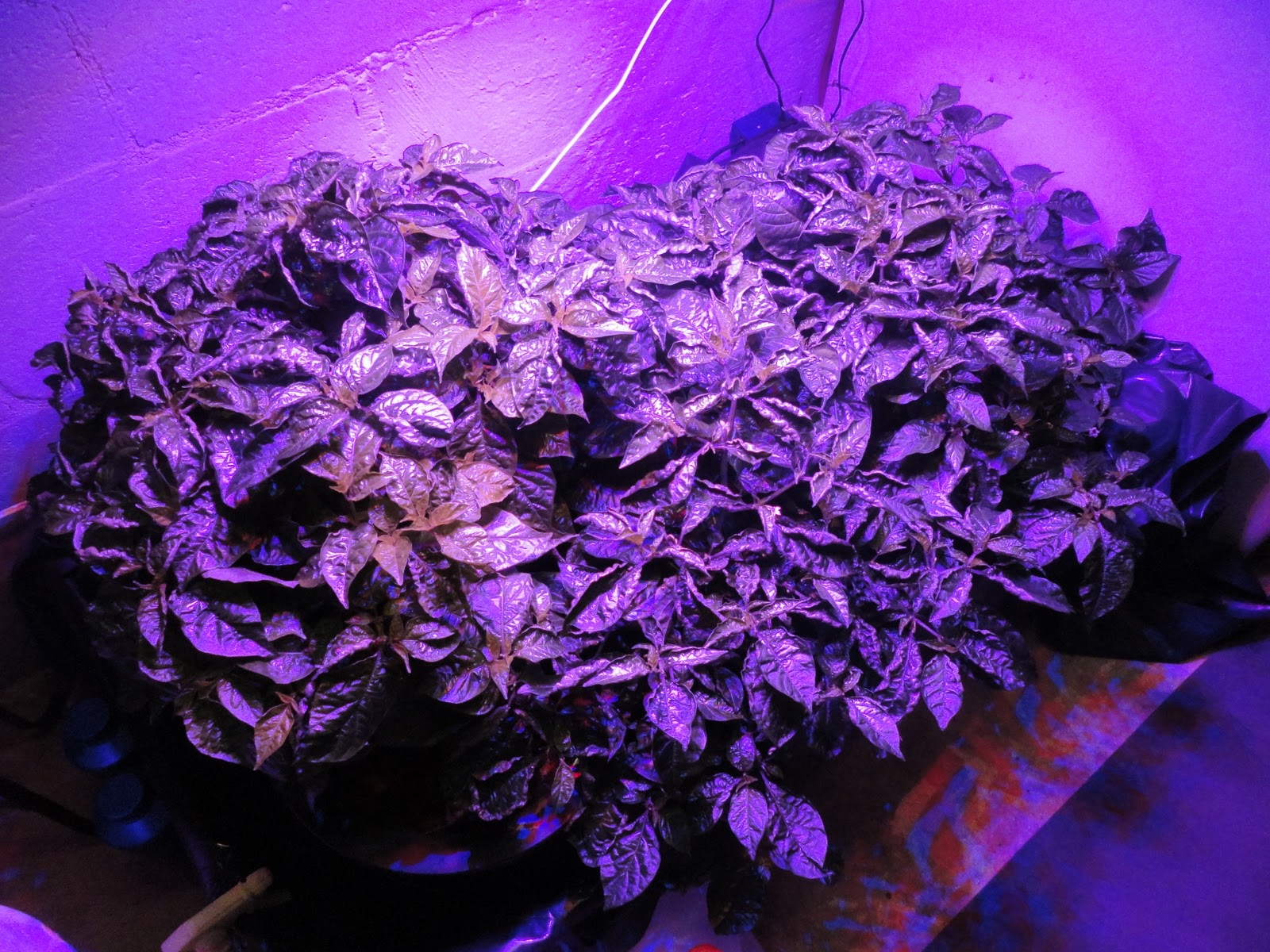Here is a grow we have had going for a couple months now.
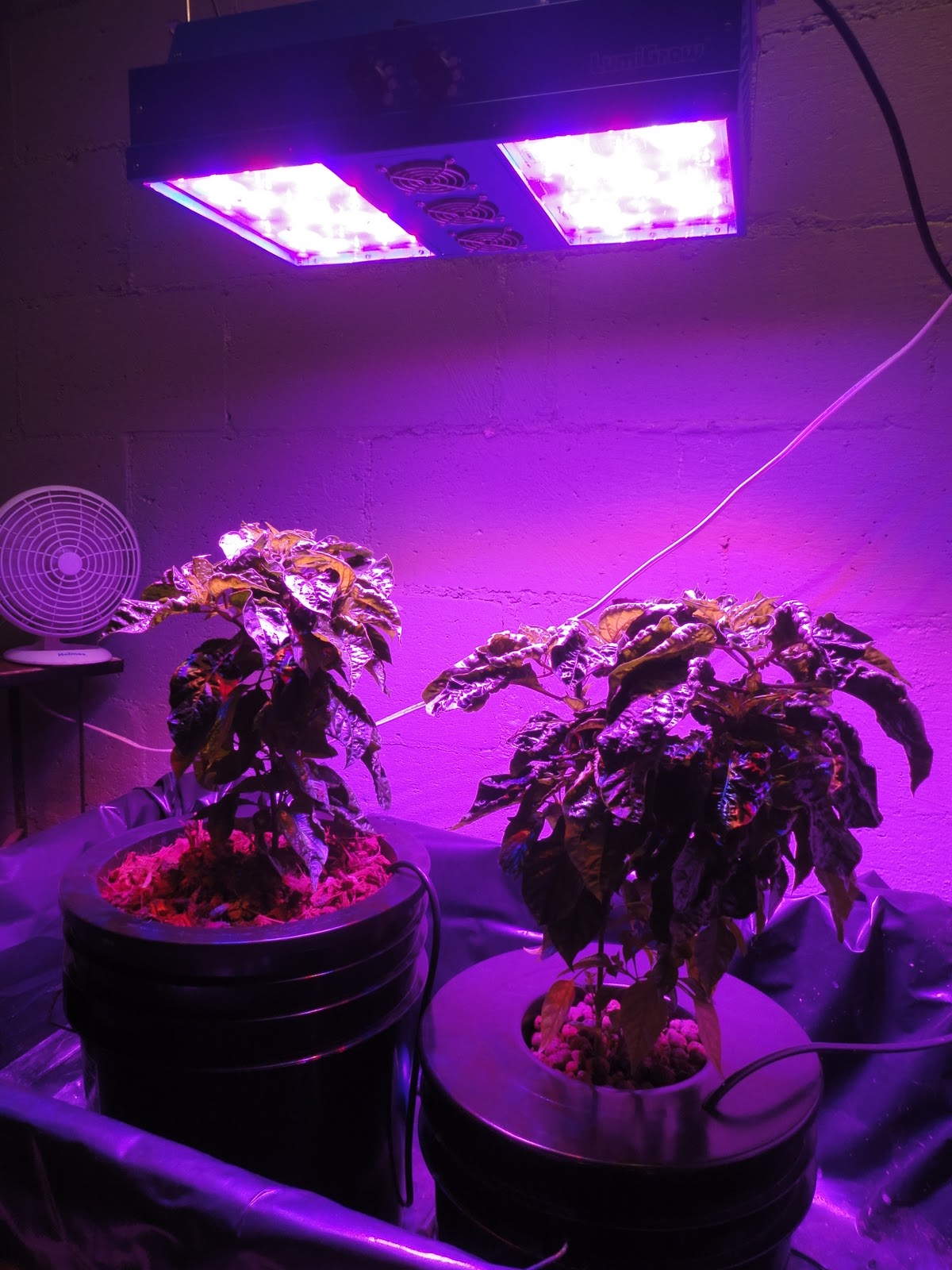
This indoor garden features two independent Deep Water Culture (DWC) Hydroponics systems from AlphaHydro. The first system (shown on left) features a 5 gallon bucket reservoir, a 10 inch net pot bucket basket, and General Hydroponics chipped coco coir grow media. The second system (same picture on right) features a 3.5 gallon bucket reservoir with a 6 inch net pot bucket basket and expanded clay grow media. Both systems have their own air pump and air stone, although you can run multiple systems off of one pump should you choose. The air pumps run constantly to provide oxygen and aerate the nutrient solution.
Both systems reside in a 2'x3.5' tub lined with 6 mil black poly sheeting. The tub serves to define the garden boundries and contain any plant matter or spills.
The light source is the Lumigrow 330 ES, LED horticultural grow light. This 330 watt enhanced spectrum grow light will acommodate a garden area of 12-16 square feet. We suspended the lamp using rope ratchet style hangers. We also added a timer.
The enhanced spectrum provided by this unit delivers an optimum full PAR range (photosynthetically active radiation, 400 to 700nm) to the plants. Internal fans keep the lamp cool, (warm to the touch) after hours of continuous operation. No additional cooling/ fans/ ducts, ballasts or reflectors are needed. Power consumption is about 50% when compared to an equivalent 600 watt HPS or MH lamp.
You can read more about this light, including all the spec's here.
The nutrients for this grow are from Tecnaflora's Recipe for success.
We chose some datil pepper seedlings that we had started outdoors. They were propogated from seed in a mixture of coco coir, perlite and vermiculite. We transplanted 2 plants into each of the AlphaHydro dwc systems. Each of the plants were about 4-5 inches in height. Not the best specimens mind you, (left over stock that didn't make the cut for the outdoor garden), but they would do.
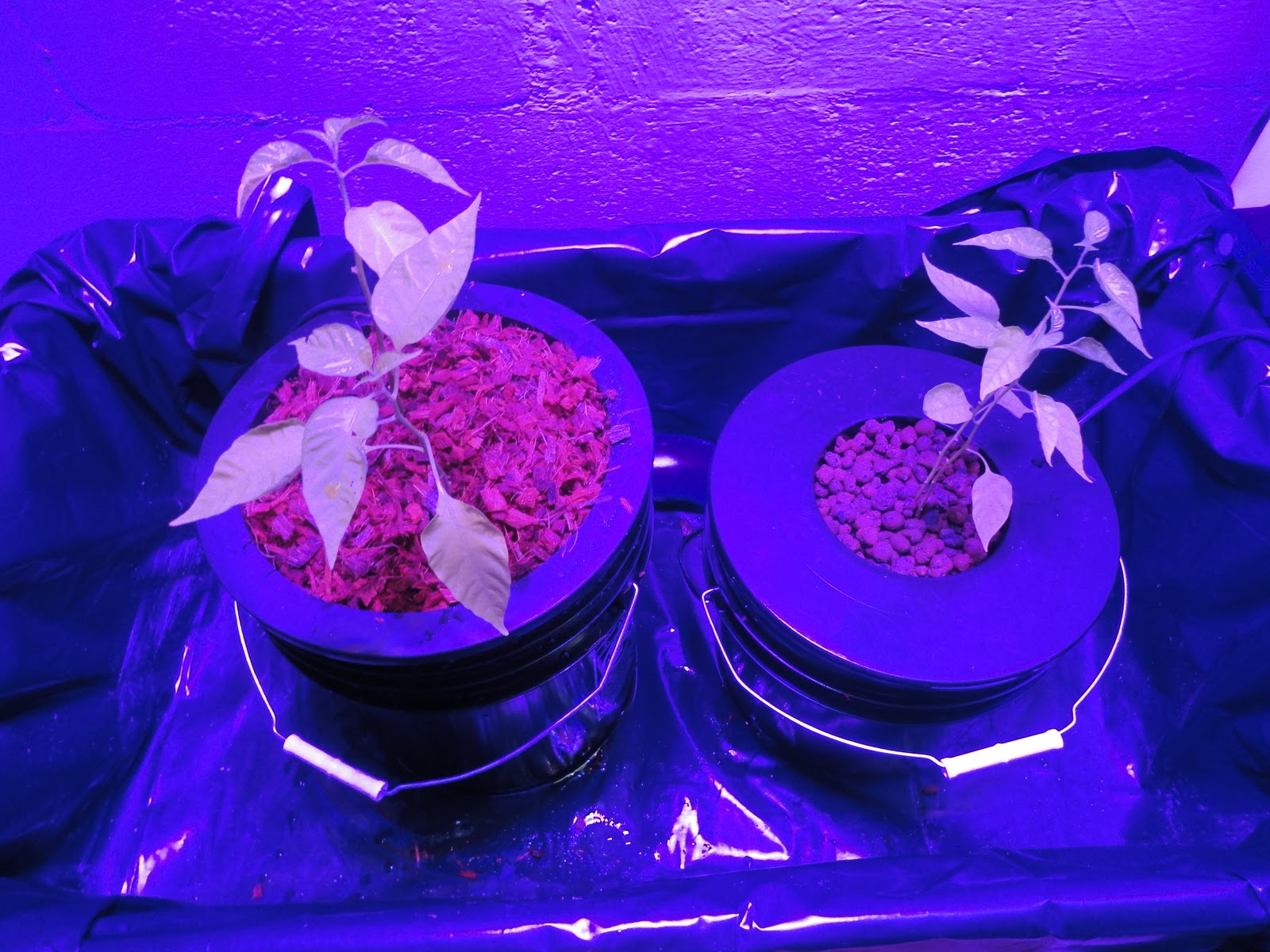
The light cycle runs 18 hours on 6 hours off. Initially, the grow light is placed about 2 ft above the plant seedlings.The air pumps run constantly for continuous aerating of the reservoirs. We added a small fan for increased air circulation around the plants.
Within 7 to 10 days, new growth began to emerge from each of the plants. As the plants began to develop several sets of leaves, the light was moved closer to the tops of the plants (approximately 8 - 12 inches above the canopy).
Nutrients replenished about every 7- 10 days. The two systems combined use about 3 gallons of nutrient solution. As the plants grow in size and root system develops, we expect the amount of nutrient solution needed will increase.
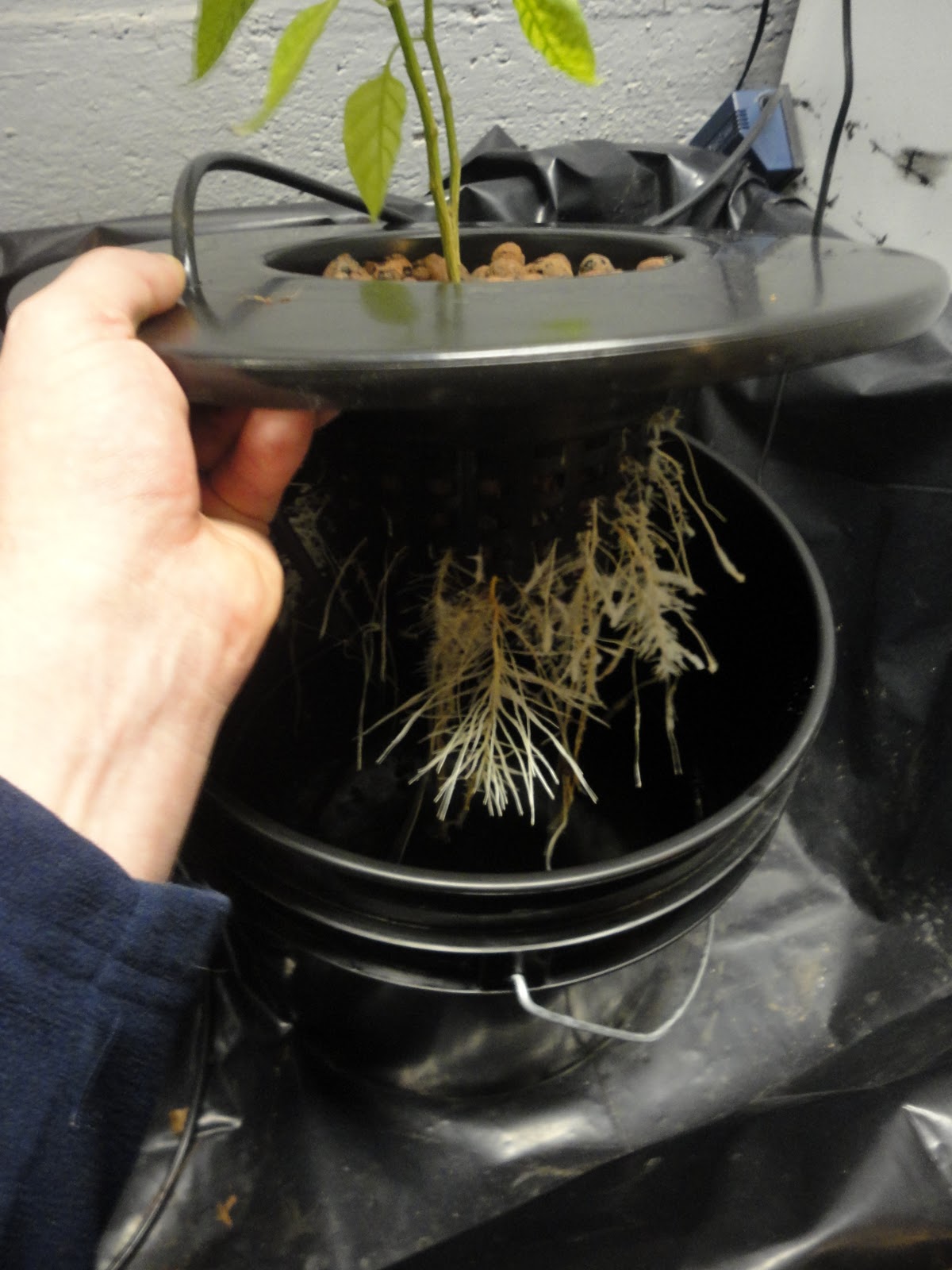
Within 2 weeks, the plants began to extend and develop a healthy root system.
Plant development over the next 6 weeks was consistent in all but one of the plants. One of the plants in the 5 gallon system lagged significantly behind the others and was removed.
During weeks six and seven, the first sign of flower development emerged on each of the remaining 3 plants.
The root systems too, continued to develop and expand.
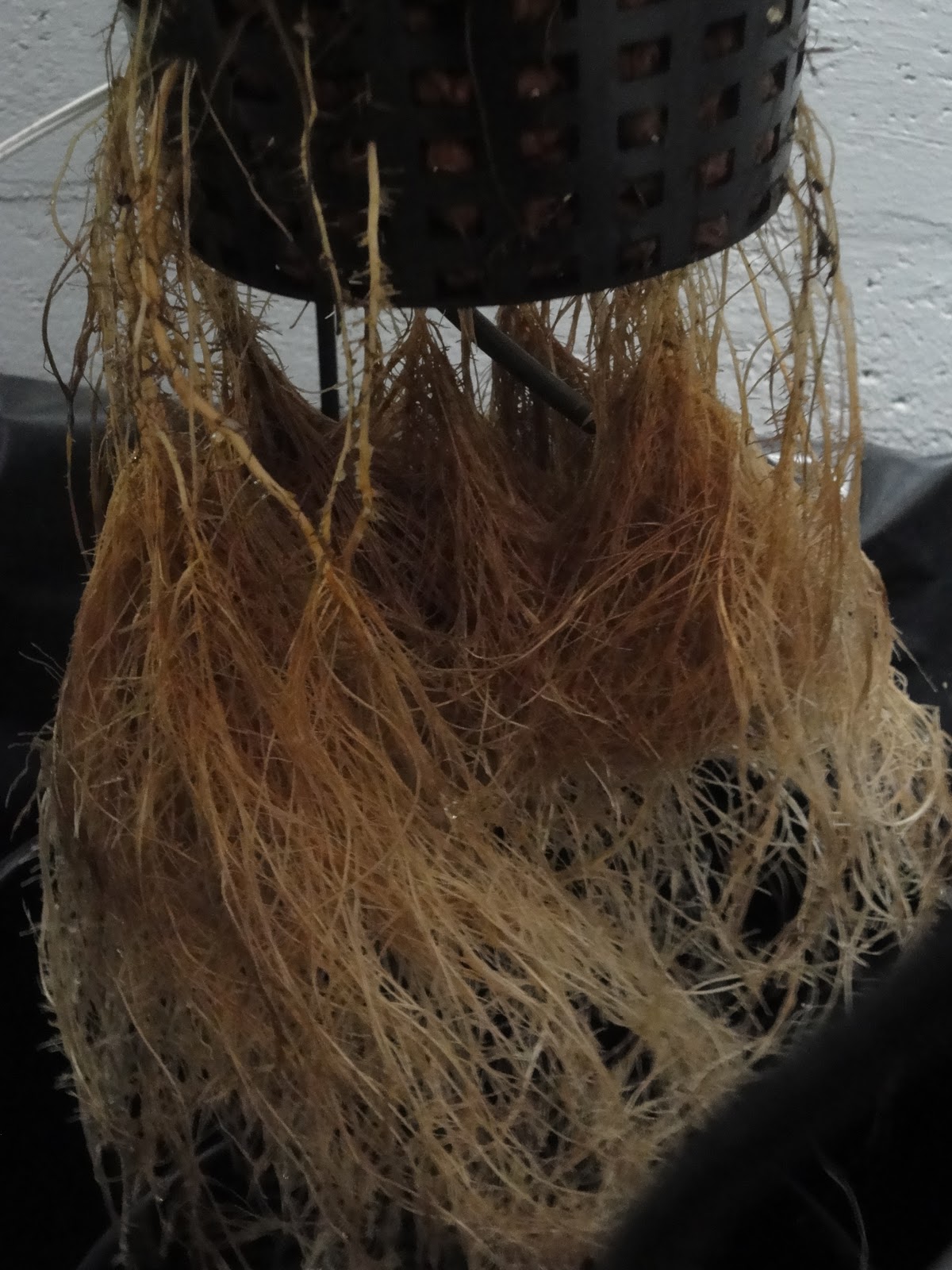
Week 8 - The first flowers begin to open. We maintained the level of the lights above the plant canopy. Nutrient solution began to be used up a much faster pace. We increased the volume of nutrient solution to approximately 4 gallons between the 2 systems.
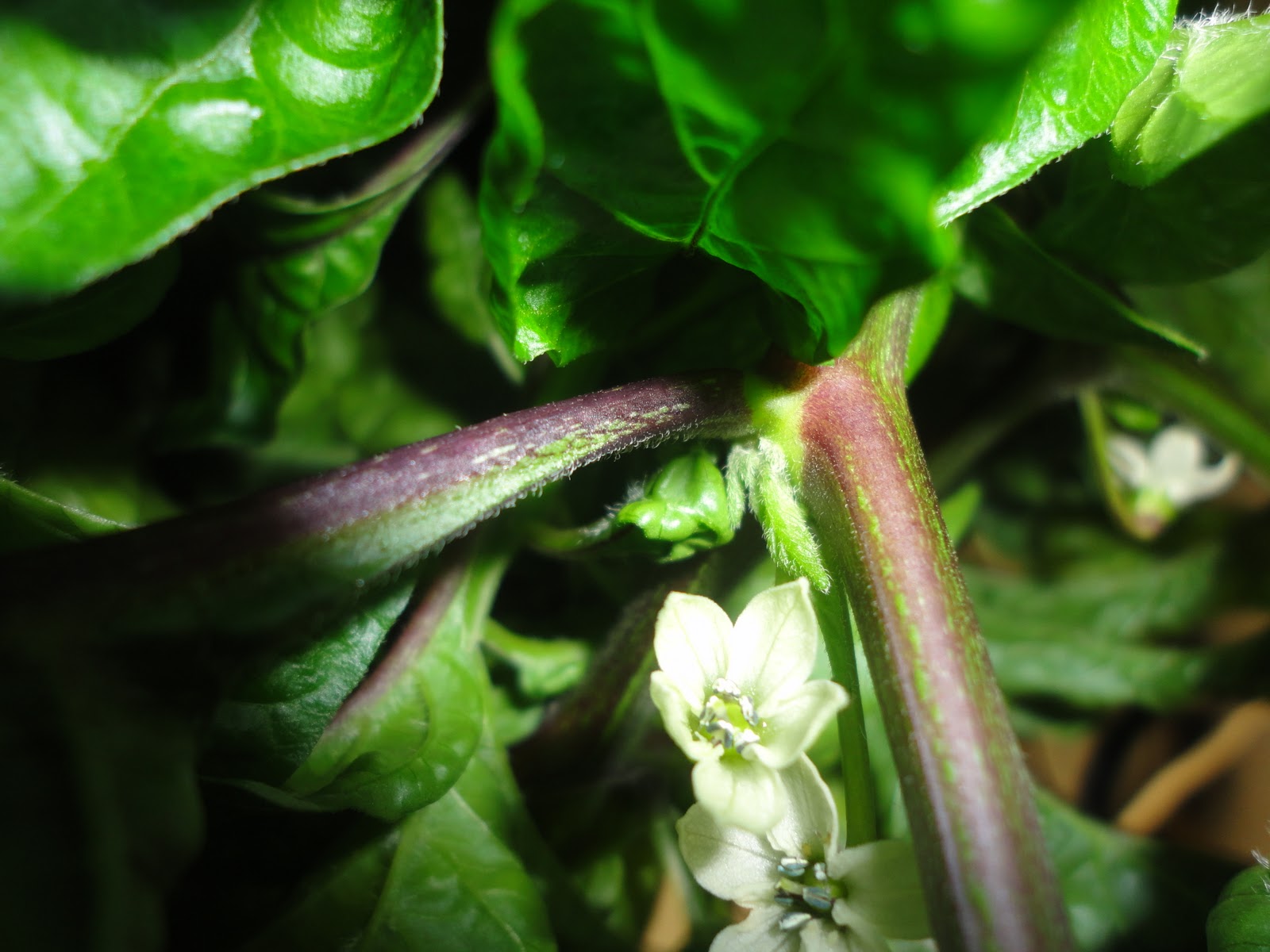
During weeks nine and ten, the plants nearly doubled in size. Vegetative growth surged and the plants were filling out quite nicely with tight internodal patterns. More flowers began to emerge. We began to aid pollination using a cotton swab on the flowers.
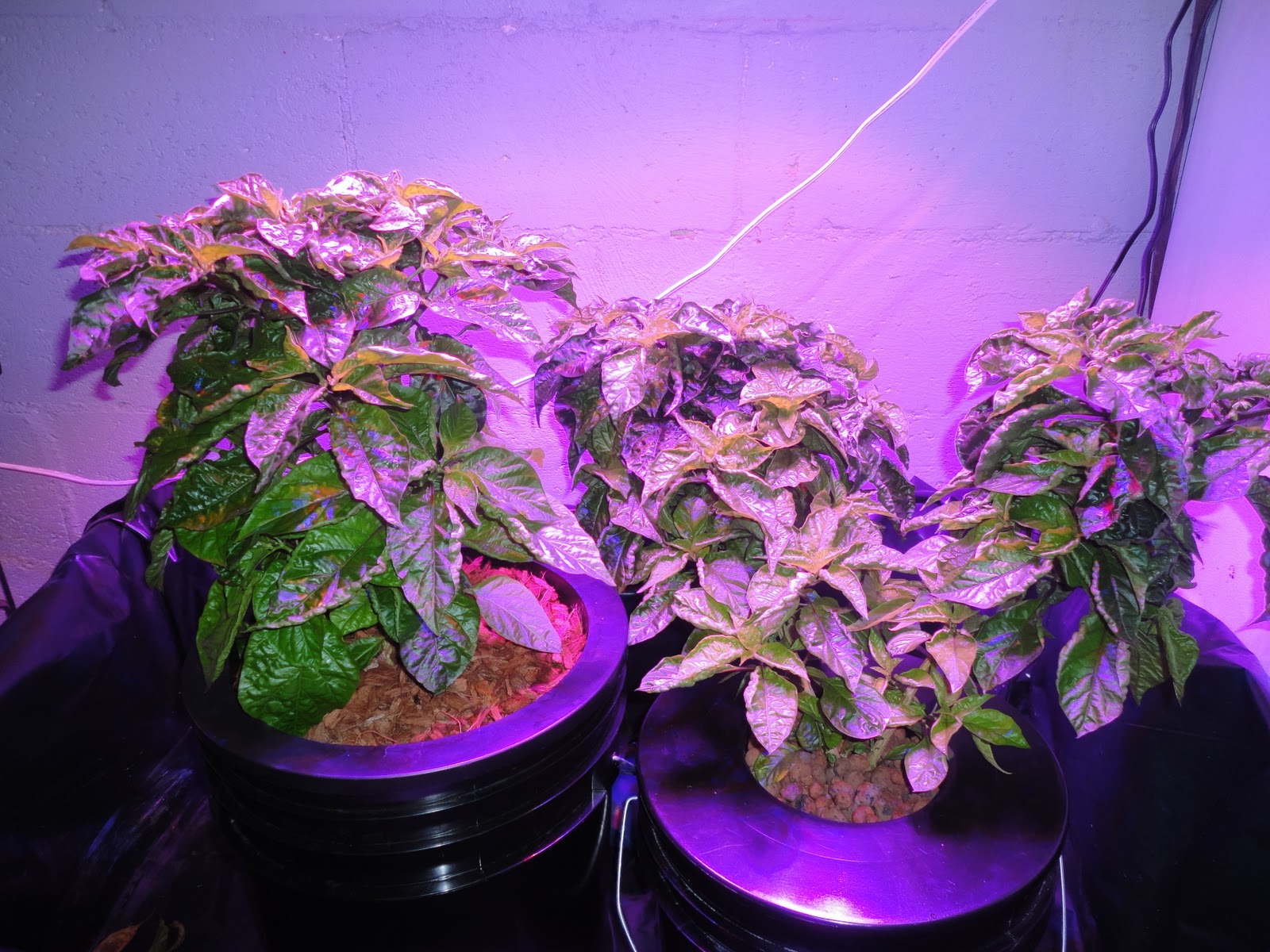
During the course of this grow we employed the following techniques:
Each time we replenished the nutrient solution, we rinsed the grow media with fresh water.
We rotated the plants to make sure light was equally reaching all parts of the plants.
We monitored the pH and TDS levels in each system. (Neither seemed to fall out of favorable range. No adjustments neccesary).
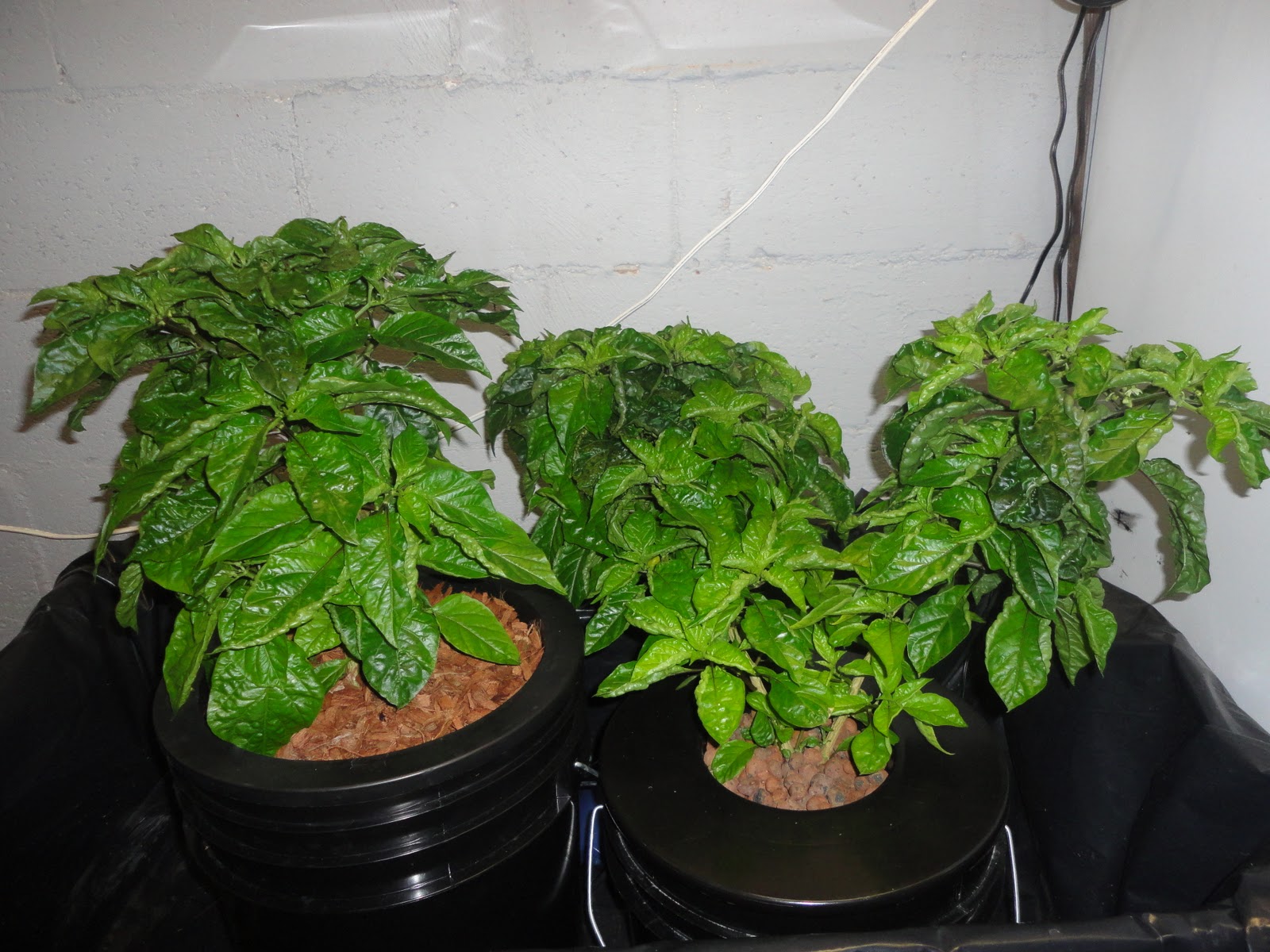
More updates and images coming soon.

This indoor garden features two independent Deep Water Culture (DWC) Hydroponics systems from AlphaHydro. The first system (shown on left) features a 5 gallon bucket reservoir, a 10 inch net pot bucket basket, and General Hydroponics chipped coco coir grow media. The second system (same picture on right) features a 3.5 gallon bucket reservoir with a 6 inch net pot bucket basket and expanded clay grow media. Both systems have their own air pump and air stone, although you can run multiple systems off of one pump should you choose. The air pumps run constantly to provide oxygen and aerate the nutrient solution.
Both systems reside in a 2'x3.5' tub lined with 6 mil black poly sheeting. The tub serves to define the garden boundries and contain any plant matter or spills.
The light source is the Lumigrow 330 ES, LED horticultural grow light. This 330 watt enhanced spectrum grow light will acommodate a garden area of 12-16 square feet. We suspended the lamp using rope ratchet style hangers. We also added a timer.
The enhanced spectrum provided by this unit delivers an optimum full PAR range (photosynthetically active radiation, 400 to 700nm) to the plants. Internal fans keep the lamp cool, (warm to the touch) after hours of continuous operation. No additional cooling/ fans/ ducts, ballasts or reflectors are needed. Power consumption is about 50% when compared to an equivalent 600 watt HPS or MH lamp.
You can read more about this light, including all the spec's here.
The nutrients for this grow are from Tecnaflora's Recipe for success.
We chose some datil pepper seedlings that we had started outdoors. They were propogated from seed in a mixture of coco coir, perlite and vermiculite. We transplanted 2 plants into each of the AlphaHydro dwc systems. Each of the plants were about 4-5 inches in height. Not the best specimens mind you, (left over stock that didn't make the cut for the outdoor garden), but they would do.

The light cycle runs 18 hours on 6 hours off. Initially, the grow light is placed about 2 ft above the plant seedlings.The air pumps run constantly for continuous aerating of the reservoirs. We added a small fan for increased air circulation around the plants.
Within 7 to 10 days, new growth began to emerge from each of the plants. As the plants began to develop several sets of leaves, the light was moved closer to the tops of the plants (approximately 8 - 12 inches above the canopy).
Nutrients replenished about every 7- 10 days. The two systems combined use about 3 gallons of nutrient solution. As the plants grow in size and root system develops, we expect the amount of nutrient solution needed will increase.

Within 2 weeks, the plants began to extend and develop a healthy root system.
Plant development over the next 6 weeks was consistent in all but one of the plants. One of the plants in the 5 gallon system lagged significantly behind the others and was removed.
During weeks six and seven, the first sign of flower development emerged on each of the remaining 3 plants.
The root systems too, continued to develop and expand.

Week 8 - The first flowers begin to open. We maintained the level of the lights above the plant canopy. Nutrient solution began to be used up a much faster pace. We increased the volume of nutrient solution to approximately 4 gallons between the 2 systems.

During weeks nine and ten, the plants nearly doubled in size. Vegetative growth surged and the plants were filling out quite nicely with tight internodal patterns. More flowers began to emerge. We began to aid pollination using a cotton swab on the flowers.

During the course of this grow we employed the following techniques:
Each time we replenished the nutrient solution, we rinsed the grow media with fresh water.
We rotated the plants to make sure light was equally reaching all parts of the plants.
We monitored the pH and TDS levels in each system. (Neither seemed to fall out of favorable range. No adjustments neccesary).

More updates and images coming soon.

